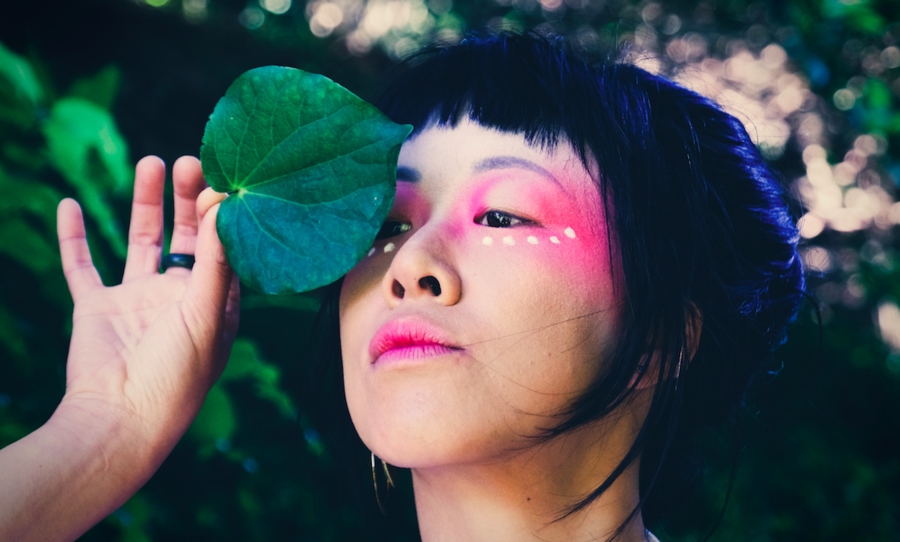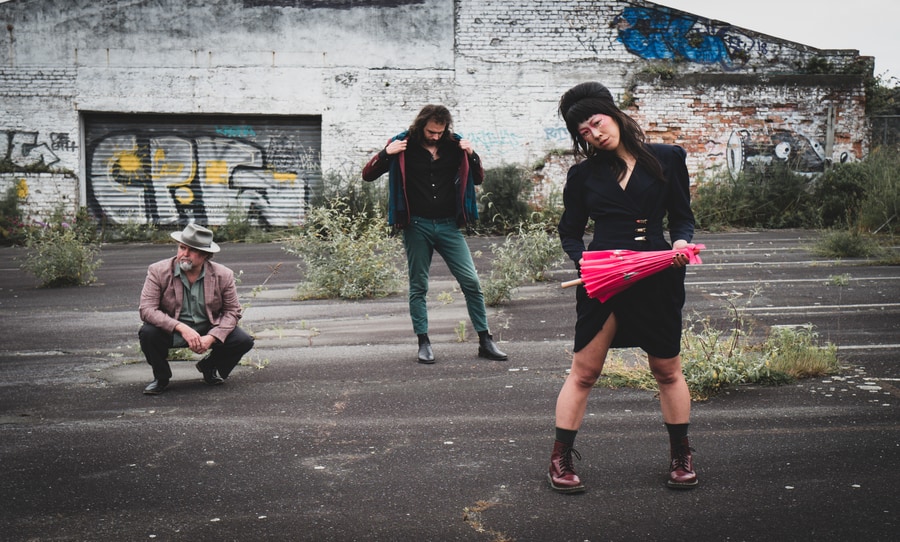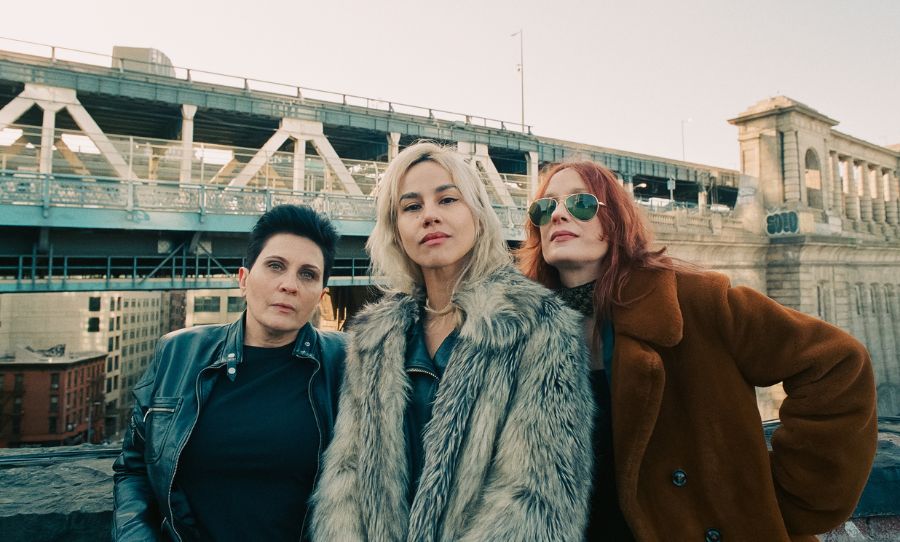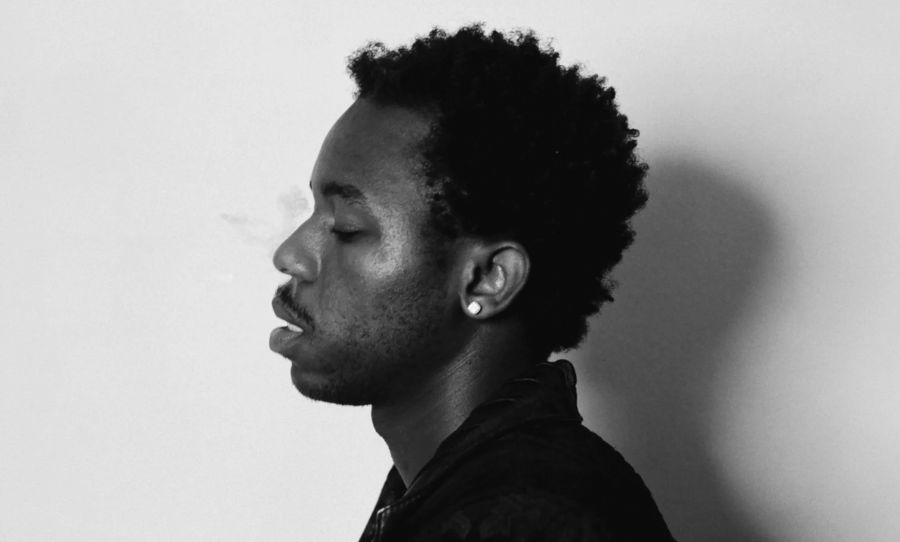New Zealand outfit KITA takes jazz, pop, and soul then gives them an irresistible modern twist. We caught up to hear more about their music.
KITA has made a name for themselves in the NZ music scene, with their ambient, warm textures and gorgeous vocals. The three-piece consists of writer and vocalist Nikita, keyboardist Ed, and drummer Rick.
We just had to have a chat with them about their latest single Private Lives, and their journey with music and songwriting.

HAPPY: Hey there, Nikita, Ed and Rick! So happy to be chatting with KITA. Where do you find yourselves today
NIKITA: I’m sitting in the sun in my flat in Newtown Wellington, a cup of green tea in hand.
ED: I’m out in the house I grew up in just north of Wellington, in a valley and surrounded by trees. There’s a fire on for extra cosiness.
RICK: At my family home in Wainuiomata, enjoying a warm, still autumn evening.
HAPPY: Tell us a little bit about KITA? When did the group start?
NIKITA: We’ve been playing together for a long while now, but KITA officially started at the end of 2019.
ED: KITA is the latest and most concise chapter of our musical and personal relationships with each other. We have been focussed and supported by our manager, Seamus Morley, to record and release our first EP and now our debut album. Still, we’ve been playing together in various projects for many years now, so our connection is deep and strong, and we know each other’s playing very well.
RICK: Yes, bro Chur!
HAPPY: You’ve all had blooming careers in the music industry. What have you taken from those experiences and put into KITA?
NIKITA: I love weaving my theatre/film making and writing into how I approach what we make. Lately, I’ve been really enjoying the writing of our music video concepts. That has been tickling a different part of my creative muscle, and it’s super fun. When I play outside of KITA, it’s often more acoustic, more organic and perhaps a little odder (!). It’s nice to see the blend we three create with our individual personas. I see it as giving birth to this three-headed entity that makes KITA.
ED: I bring my love for electronic bass music, sound design and also soul and jazz music. The Minimoog on my left hand allows me to delve into the electronic side in live and studio settings, even if it’s just the sub-bass content that a synth allows, whilst the Rhodes coupled with some effects (my favourite being the Strymon Bigsky) brings the lush, expansive sounds of nice thick chords echoing through some sort of mystical and magical galactic web. On the production side of things with KITA with this upcoming album, I’ve done a lot of electronic drum and percussion programming too, which is fun and familiar territory for me that I do for my solo electronic project Zuke, where I make and DJ electronic bass music from breaks to dubstep to jungle, halftime and drum ‘n bass.
RICK: I have enjoyed, for much of my life so far, journeying through rock, roots, blues, psychedelic rock, soul & R&B, jazz and improvised music. I like to bring practical tools to fuse genres in new ways, explore dynamic and light & shade. I love being involved in the moulding and delivery of a song and a live show. Being a part of shaping a song to take an audience on a journey and then shaping a whole show as a journey. I think I have an earthy sound and earthy approach, which helps in some way to ground a performance, yet I also enjoy the feeling of exploring our sound as if we intended it to push out deep into the cosmos somewhere.
View this post on Instagram
HAPPY: Tell us a bit about the music style of the group!
NIKITA: Ha! I bet we are all going to have a different answer to this—psychedelic electro-pop. But to be honest, the answer changes all the time. Ask me again tomorrow.
ED: To me, it’s a mash of styles, and I’m so aware of the influences that boiling it down to one thing is really difficult for me. Rick brings his filthy grooves and psychedelic rock edge, I bring the lush, expansive reverbed Rhodes and synth bass, and Nikita brings her engaging story-telling vocals with a bitey, funky guitar.
RICK: Two very strong backbone components of our music are: Strong narrative and storytelling and sonic explorations. We find ways to balance the art of crafting a strong, meaningful song with ecstatic sonic journeys that aim to uplift and positively affect our audiences.
HAPPY: You released Private Lives a couple of weeks ago along with a spectacular music video – How did this concept come about?
NIKITA: Private Lives the song was conceived during level 4 lockdown in Aotearoa. During that time was when the majority of our album was written – isolated from one another. The bridge of the song, however, was conceived in Ed’s studio when all three of us were together jamming it out, and the bridge found us. We were demoing leading up to the album recording at Armoury Studios in Wellington, and as we were listening back, I was lying on Ed’s bed with my eyes closed. That’s when I saw the movie play in my head. It wrote itself in my mind. But yeah, the narrative came to me in listening back to that dream section that is the bridge.
ED: I think the original instrumental idea came from an old beat I’d made and done nothing with (loads of these lying around!), and in pulling out the sounds I didn’t vibe with, I put in a drum break from a friend’s organ trio EP which formed the basis for the beat you hear in the final version that Rick played.
RICK: With Nikita’s vision, Ed’s wizardry and some amazing friends helping us piece the puzzle together.
HAPPY: How do you think the Pōneke cityscape has influenced your sound?
ED: Over the last couple of years, I’ve gotten a lot of inspiration from the local underground bass music scene, from hearing what people are making and playing and also making new beats myself and testing them out on dancefloors, beats that are fuelled by the energy that is created in those environments. Previous to that, I was very involved for many years in the live music scene in Te Whanganui-a-Tara (Wellington), which is steeped in jazz, funk and soul and is home to so many great musicians. I also think that having the bush and the sea close at hand lends to my love for expansive soundscapes and the use of nature field recordings which I make with a small handheld recorder, which feature in a few of our tracks.
RICK: So much! Geographically, spiritually, culturally, sonically. Te Whanganui-a-Tara is just an overgrown village, really, so our interactions with like-minded artists and creatives are plenty. I think this results in us fusing ideas that come from the smallest interactions with people or things our friends and colleagues share to the larger melting pot of music fusions we hear in our local music scene. For me and our band as a collective, the landscape and geography of Te Whanganui-a-Tara play an integral influence. I have learned so much about the groove and flow from riding waves on our region’s south and west coast. I gain so much inspiration in writing beats and rhythms from looking at the shapes of hills and mountain ranges. The rock formations, bush, wildlife, all of these things I find influence my creative writing all the time.
View this post on Instagram
HAPPY: Is Private Lives a sneak peek into the theme of your upcoming album? – what were your inspirations for it?
NIKITA: I was in the kitchen that day when the lyrics for Private Lives came knocking. It was Level 4 lockdown in Aotearoa, and I was thinking to myself that it would be a terrible time to be having a terrible time at home. I was thinking about people who didn’t feel safe in their homes, and that’s why the tune itself has a dark feel to it. The initial intention of Private Lives was to get people to think twice before making harsh judgments on strangers because we don’t know what lives people lead behind closed doors. We don’t know what hard-lived experiences they have had. We only get to see the 40%, 50%, maybe 60% of themselves they choose to share with the outside world. This tune represented a big part of lockdown in Aotearoa. Because all of a sudden, time stood still, and our lives, our purpose became magnified within our walls.
RICK: The album is varied stylistically and emotionally. I think it is a good example of our writing and sonic image, yet there are so many different aspects to it. It can good indication of the depth lyrically and sonically.
HAPPY: What’s something you are particularly proud of with the new album?
ED: I’m amazed about every part of how we collaborated with producer Tommaso Colliva – firstly the fact that we get to work with him (and he wants to also haha!), a Grammy award-winning producer, and secondly, the whole process of having him on a Zoom call in The Armoury studio in Wellington, listening in and producing us from his studio in Milan, Italy. He had almost instant access to the takes we just recorded, so he could make any changes as we went. I’m personally proud to have done so much sound design and production on this album and of how we as a group navigated through all the challenges together, with lots of heart and care.
RICK: Hearing our musical diversity organised in such a way that there is a sonic thread through all the songs, that is our sound! Tommi has been a huge help in understanding our sound and focusing it, and directing it. Also, for me to hear the result of depth of thought gone into the stories and their sonic deliveries. I love hearing the detail in the varying vocal deliveries and sonic elements that support the kaupapa of the song.
HAPPY: Can we expect some live music in the future?
RICK: We are touring Aotearoa in June, so we hope to hop the ditch and head to Australia soon. That’s the intention!
ED: What Nikita said. Hell yes.
RICK: We love to play music live and in the moment to people who respond to it in the moment. This is the foundation of what we do. While it’s great working in the studio and honing ideas into songs when we are able to communicate with an audience through live music, and they are moved in a positive way, there is nothing better for us. So we intend to do much more of this!
Listen to Private Lives below:
Interview by Jasmine Kassis



